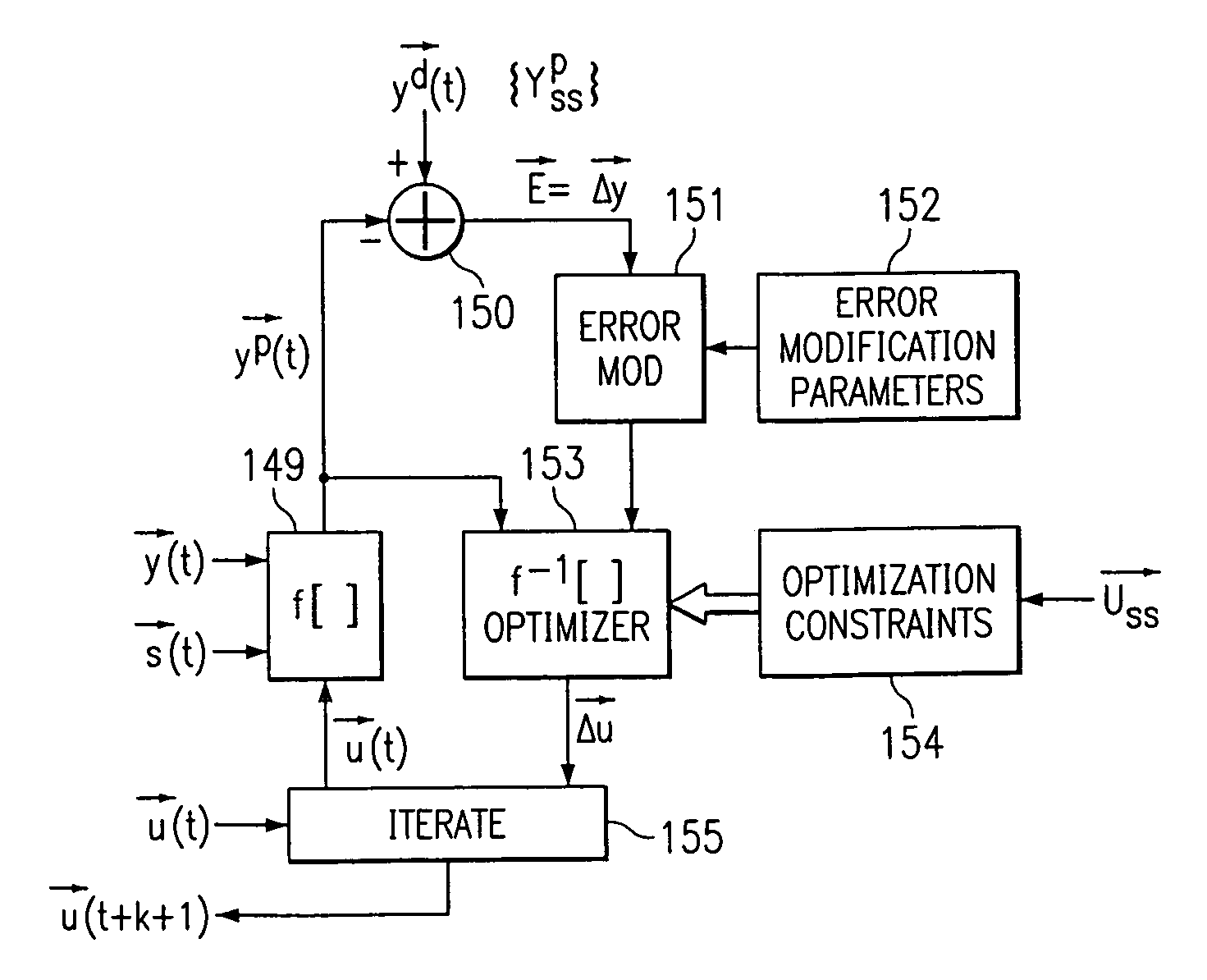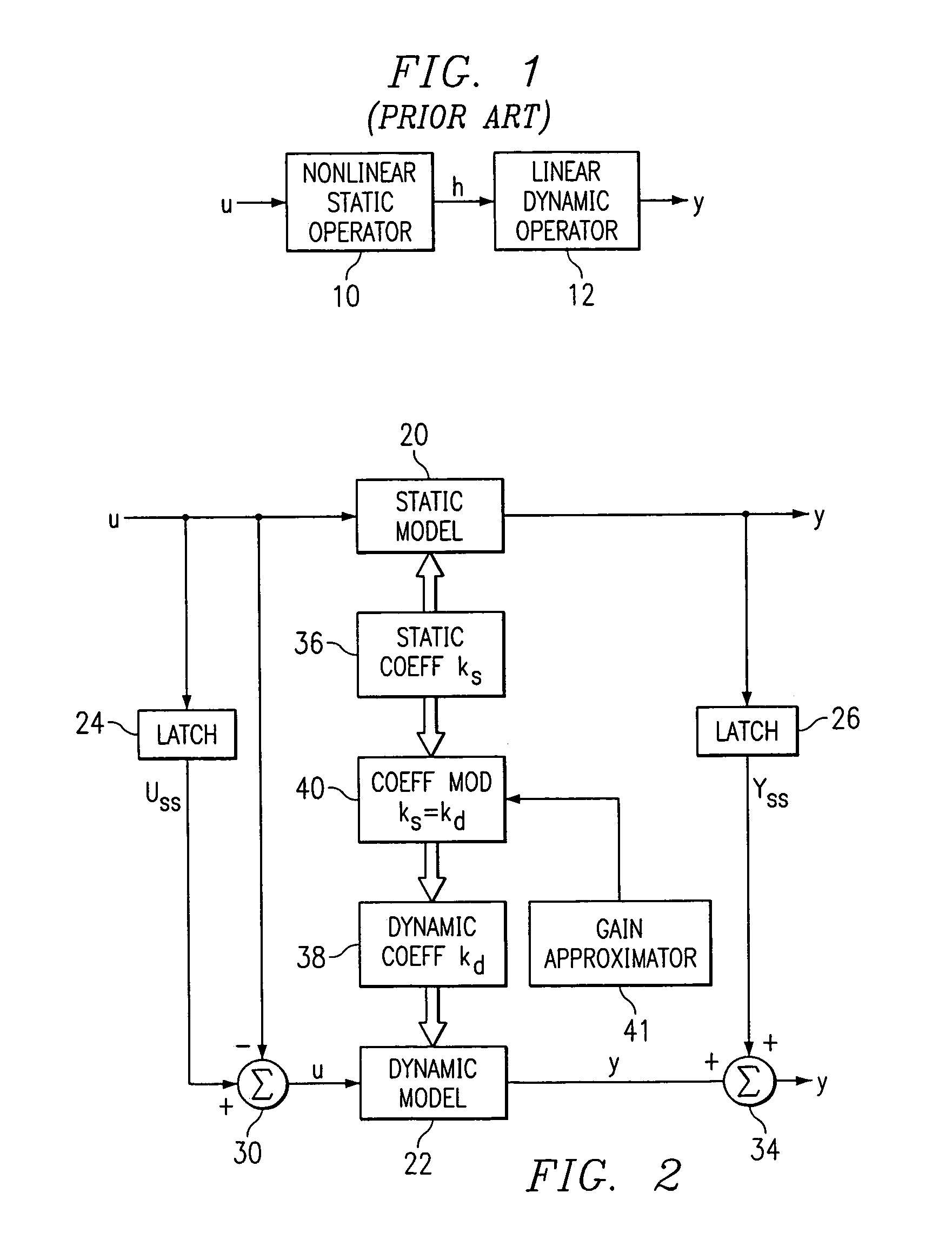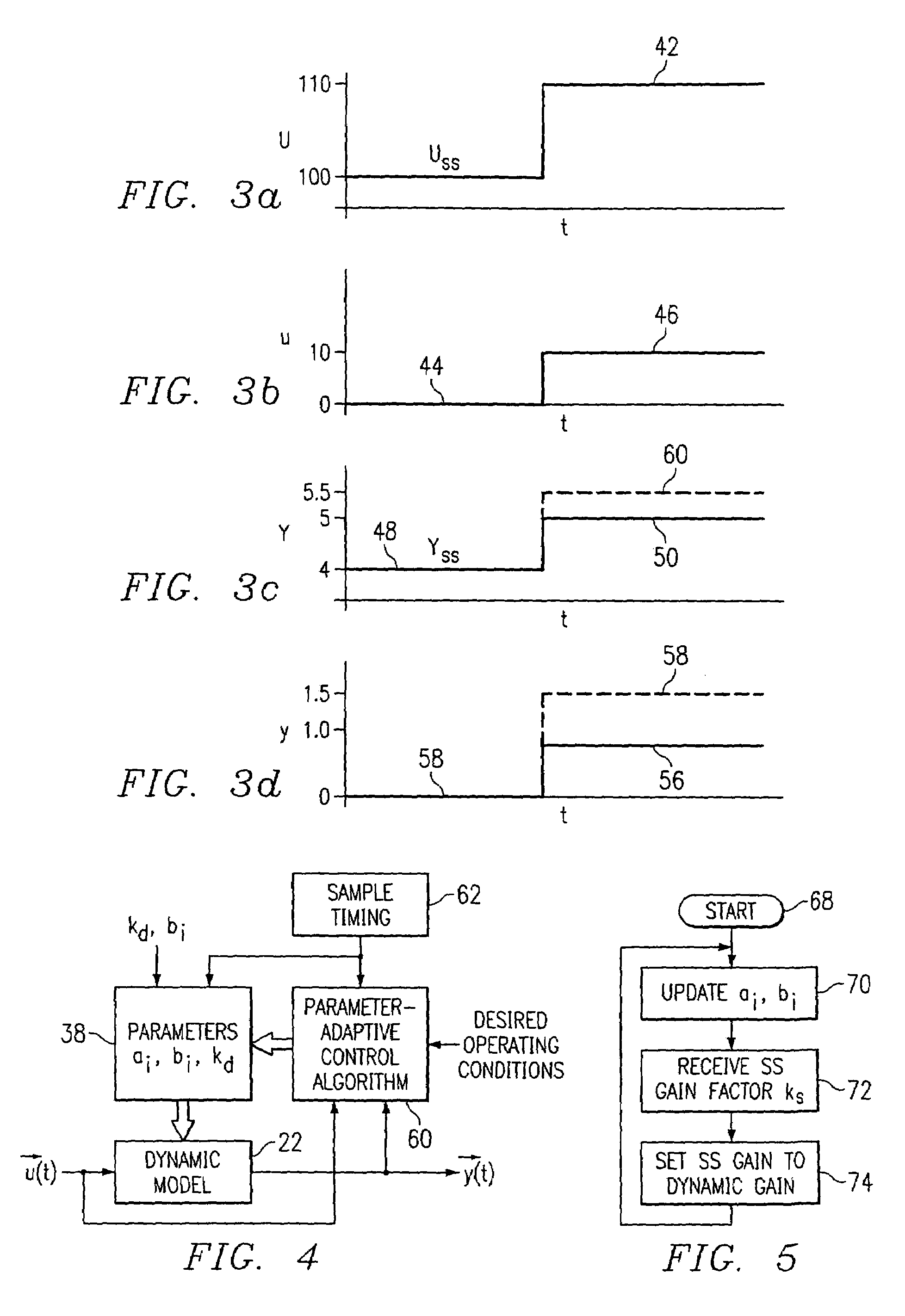Kiln control and upset recovery using a model predictive control in series with forward chaining
a predictive control and model technology, applied in adaptive control, process and machine control, instruments, etc., can solve problems such as insufficient non-linear information in dynamic data sets, inability to account for perturbations, and inability to adequately model system gain for existing steady-state operating conditions
- Summary
- Abstract
- Description
- Claims
- Application Information
AI Technical Summary
Benefits of technology
Problems solved by technology
Method used
Image
Examples
Embodiment Construction
[0052]Referring now to FIG. 1, there is illustrated a diagrammatic view of a Hammerstein model of the prior art. This is comprised of a non-linear static operator model 10 and a linear dynamic model 12, both disposed in a series configuration. The operation of this model is described in H. T. Su, and T. J. McAvoy, “Integration of Multilayer Perceptron Networks and Linear Dynamic Models: A Hammerstein Modeling Approach” to appear in I & EC Fundamentals, paper dated Jul. 7, 1992, which reference is incorporated herein by reference. Hammerstein models in general have been utilized in modeling non-linear systems for some time. The structure of the Hammerstein model illustrated in FIG. 1 utilizes the non-linear static operator model 10 to transform the input U into intermediate variables H. The non-linear operator is usually represented by a finite polynomial expansion. However, this could utilize a neural network or any type of compatible modeling system. The linear dynamic operator mod...
PUM
 Login to View More
Login to View More Abstract
Description
Claims
Application Information
 Login to View More
Login to View More - R&D
- Intellectual Property
- Life Sciences
- Materials
- Tech Scout
- Unparalleled Data Quality
- Higher Quality Content
- 60% Fewer Hallucinations
Browse by: Latest US Patents, China's latest patents, Technical Efficacy Thesaurus, Application Domain, Technology Topic, Popular Technical Reports.
© 2025 PatSnap. All rights reserved.Legal|Privacy policy|Modern Slavery Act Transparency Statement|Sitemap|About US| Contact US: help@patsnap.com



